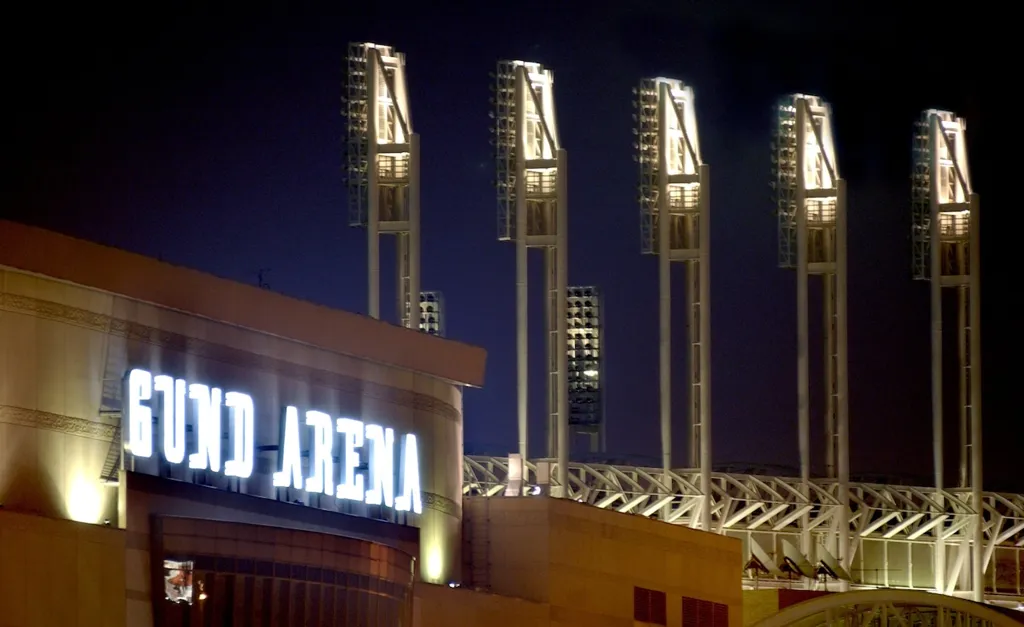CLEVELAND, Ohio -- Let's talk about the complicated codependent relationship between the city of Cleveland, Cuyahoga County, our professional sports teams and the Gateway Economic Development Corporation. It's a perfect example of how basing long-term profitability on uncontrollable projections, wishful thinking and the erroneous belief that pro sports are economic boosters can really fail.
This cluster is rooted in the late 1800s, when baseball emerged as America's pastime and businesses saw opportunity. Example - tobacco companies included trading cards in cigarette packs to increase sales. In the early 1900s, public money started to help build sports facilities for the Olympics. In 1951, then-baseball commissioner Ford Frick told cities they had to support their teams because the teams brought so much money into their communities.
In the early 1980s, after a century of monetized professional sports, government officials started singing the song they had been taught - that pro sports teams and their stadiums/fields/arenas were economic development magic for struggling urban areas. But remember, everything always comes down to money and power.
"Owning a pro sports organization is an investment. The better the return on an investment, the happier the investor," or so goes the refrain.
Now, when the Gund brothers bought the Cavaliers in 1983, they played at Richfield Coliseum. It was privately owned by former Cavs owner Nick Mileti and was a long drive out there. The Gunds decided that having a team in city limits would be beneficial but required an arena. Working with city and county leadership led to creating Gateway Entertainment Complex—a $203 million project for building both baseball field & basketball court—and establishing Gateway Economic Development Corporation for managing revenue & expenses thereof.
The city/county would benefit from this complex; hence elected officials agreed public funds should go into it—voters even approved sin tax on tobacco/alcohol products towards construction costs leading up till completion year '94 wherein Gateway became proud owner not only entire complex but also East Fourth Street parking garage too!
"Everyone was sure Gateway would always have plenty of revenue... After all both teams signed multi-decade leases."
But there was trouble—the parking garage lost money while over years' worth skyrocketing construction-maintenance costs coupled decreasing sin-tax proceeds meant although projects identified annually (petitioned by respective team entities) could gain approval via assessments conducted yet covering them financially wasn't guaranteed thereby forcing said teams themselves pay necessary repairs making IOUs pile-up against drowning entity i.e., 'Gateway.'
"When Cleveland City Council agreed this past week to provide $20 million... we all choked on news."
- $5 million allocated via American Rescue Plan Act funds
- $10 million redirected from other non-immediate need projects
- County Council followed suit borrowing another $14.5m plus additional allocation amounting total contribution towards debt settlement efforts
"Our public officials have admitted they've mortgaged future... there's too much already invested."
Data has proven professional sports do NOT increase local wealth nor provide long-term job opportunities despite using resources like police time supporting hospitality business/tourism without actually creating jobs per se! Yes indeed community identity/pride arise especially during well-played games (shout-out Cavs!) yet isn't necessarily enough?
Families living under poverty receive no benefits amidst all hustle-bustle surrounding bright lights loud cheers emanating from within confines 'Gateway' complex itself whereas access healthcare nutritious food empowerment/job-training remains unchanged regardless however dazzling those same lights may appear spotlighting Cleveland destination happening place perhaps nice...
Wouldn't it great garner national attention solving homelessness improving health outcomes nurturing hurting neighborhoods through education/job training/community programs improvements instead? Twenty-million dollars could really make difference here!
